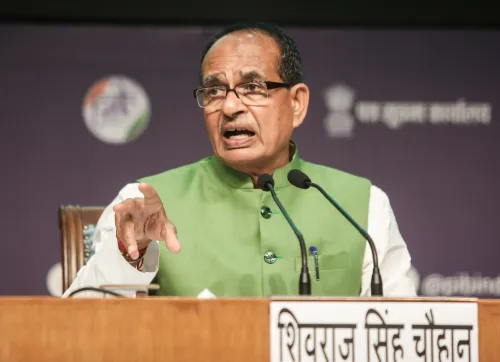Has South Korea's Household Credit Reached a New Peak in Q3 Amid Rising Mortgages?

Synopsis
Key Takeaways
- Household credit in South Korea reached 1,968.3 trillion won in Q3.
- Growth slowed to 14.9 trillion won from previous quarters.
- Mortgage loans rose to 1,159.6 trillion won, with a deceleration in growth.
- Government regulations are aimed at stabilizing the housing market.
- New lending rules have reduced the mortgage cap to 200 million won.
Seoul, Nov 18 (NationPress) In the third quarter, household credit in South Korea soared to a new record, although the pace of its growth has decelerated due to stricter lending regulations, according to data released by the central bank on Tuesday.
As of the end of September, the total outstanding household credit was recorded at 1,968.3 trillion won ($1.34 trillion), reflecting an increase of 14.9 trillion won from the previous quarter, as per preliminary figures from the Bank of Korea (BOK), as reported by Yonhap news agency.
This figure represents the highest level since the BOK started tracking this data in 2002.
Furthermore, it signifies the sixth consecutive quarter of growth, although the increase has markedly slowed down from a 25.1 trillion-won rise seen in the second quarter.
Household credit encompasses loans and credit purchases extended to families by financial institutions.
Specifically, household loans amounted to 1,845 trillion won by the end of September, which is an increase of 12 trillion won from three months prior. Within this total, mortgage loans rose by 11.6 trillion won to reach 1,159.6 trillion won, a drop from a 14.4 trillion-won increase in the preceding quarter.
Credit purchases saw an uptick of 3 trillion won over the quarter, reaching 123.3 trillion won, which is an acceleration from a 1.5 trillion-won increase in the second quarter.
BOK official Kim Min-soo stated during a press briefing, "The rise in credit purchases was fueled by increased spending during the summer holidays and higher demand for property tax payments."
He further noted, "The overall deceleration in household credit growth can be primarily attributed to government regulations. The new measures introduced in October aimed at easing conditions in the property sector are anticipated to stabilize mortgage lending rates."
The government has enacted several strategies to temper the overheated housing market and manage household debt levels. The latest policy, announced on October 15, added 21 new districts in Seoul to the list of speculative zones, bringing the total to 25 districts under stricter regulations.
These measures have also tightened lending criteria, reducing the cap on mortgage loans to as low as 200 million won, down from the 600 million-won limit established in June.









